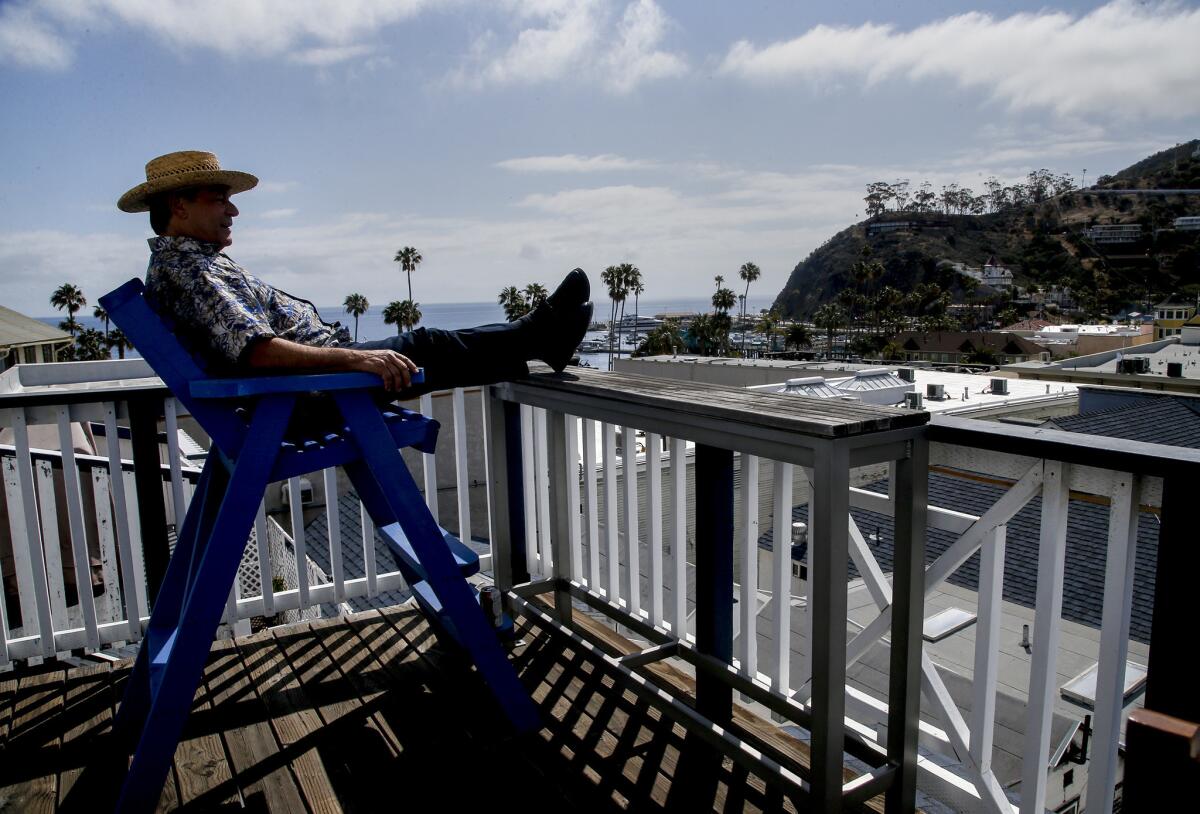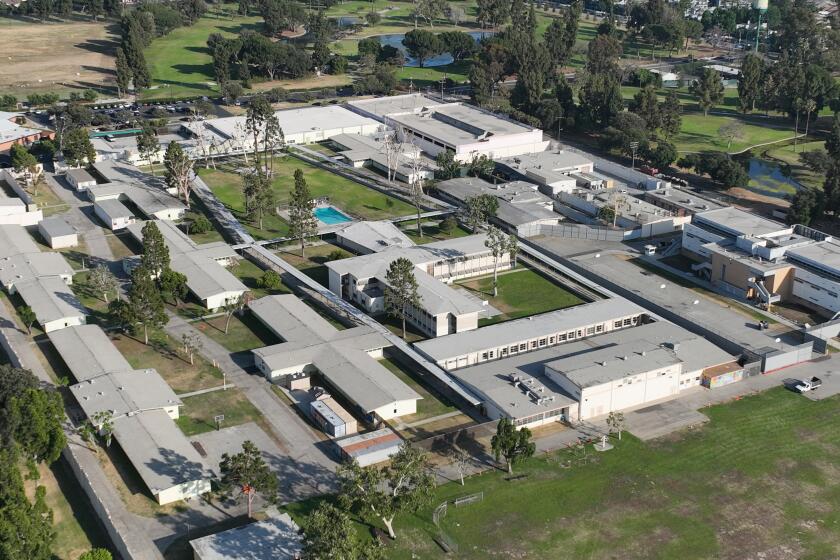Santa Catalina Island to vote on marijuana dispensary

- Share via
From a veranda overlooking Avalon harbor, real estate broker Mark Malan gazed at oceanfront cottages, a curved promenade and passing sailboats with brightly colored pennants.
To tourists, it was a place to bask in sun and surf just an hour from the California coast. But that’s not what the Long Beach businessman saw.
Malan aims to turn his real estate office here into the first medical marijuana dispensary on Santa Catalina Island, and he’s trying to make the idea attractive by promising to share a small portion of the revenue with local schools and city government.
“It’s going to create wheelbarrows of money,” Malan said, adjusting his broad-rimmed straw hat over a confident smile. But just how much of that windfall would go to schools is unknown.
A petition drive he led gathered enough signatures to put an initiative on the ballot that would repeal a current ban on medical marijuana dispensaries and allow at least two facilities in the 3-square-mile resort community with a population of roughly 3,800.
The Avalon Medical Cannabis Facility Act of 2016 would impose an annual license tax of $10,000 per dispensary and direct 50% of that amount to Avalon Schools, a K-12 complex of 750 students operated by the Long Beach Unified School District.
The initiative would also impose a 12% transaction fee for all medical marijuana purchases, which would be directed as follows: 1/3 to drug and alcohol education for local students, 1/3 to Avalon’s general fund and 1/3 to its parks and recreation department.
It would prohibit dispensaries within 1,000 feet of a public school.
Critics say the amount of money for schools is small and argue that it is a transparent gesture to try to win public support.
“All he’s doing is creating a marijuana problem – then giving back a pittance to deal with it,” said Scott Chipman, Southern California chair of Citizens Against Marijuana. “I wouldn’t care if he put every penny into schools. It’s making a deal with the devil.”
When critics point out that most of the revenue would go to Malan and his associates, Malan counters with a question: “Why do you hate kids?”
Malan said he hoped voters would keep an open mind. “Think of all the field trips and summer programs that will pay for” to help students, he said.
The Avalon City Council next week is expected to decide when to put the initiative on the ballot, where it will require a 2/3 majority to pass.
The council has three options: it can hold a special election in June, place the initiative on the November ballot or delay a vote until the next election cycle in 2018.
Malan and his business associates have already filed applications making them eligible to open two dispensaries, including one in his Santa Catalina Real Estate office, a few doors down from the main entrance to the new $10-million Catalina Island Museum.
“Critics say I just want to open a dispensary there because it will attract some of the visitors flocking to the new museum,” he said. “You know what? They’re right.”
A majority of the five-member council signed the petition: Mayor Anni Marshall and Councilmen Richard Hernandez and Joe Sampson. Two others – Oley Olsen and Cinde MacGugan-Cassidy--chose not to sign it.
In an interview, Sampson summed up his support: “Money going to schools and medicine going to sick people---what’s wrong with that?”
Olsen disagrees. “I don’t think this is a good idea for Avalon,” he said. “Kids have enough access to drugs and alcohol.”
Unknown is whether the Long Beach Unified School District would accept funds from a medical marijuana dispensary. Chris Eftychiou, a spokesman for the district, declined comment except to say, “Final decisions are up to our board.”
The election could be hotly contested. The city of about 2,000 registered voters has a reputation as deeply resistant to change.
About 88% of the 75-square-mile island is owned by the nonprofit Catalina Island Conservancy. The Catalina Island Co. about 11% of the land mass, and about 1% is owned by private individuals and the city of Avalon.
ALSO
Subsidized rent, but nowhere to go: Homeless vouchers go unused
After suspected shark attack, some O.C. beaches remain closed on Memorial Day
Graffiti is scrubbed from veterans memorial in Venice, but more restoration work remains
More to Read
Sign up for Essential California
The most important California stories and recommendations in your inbox every morning.
You may occasionally receive promotional content from the Los Angeles Times.














